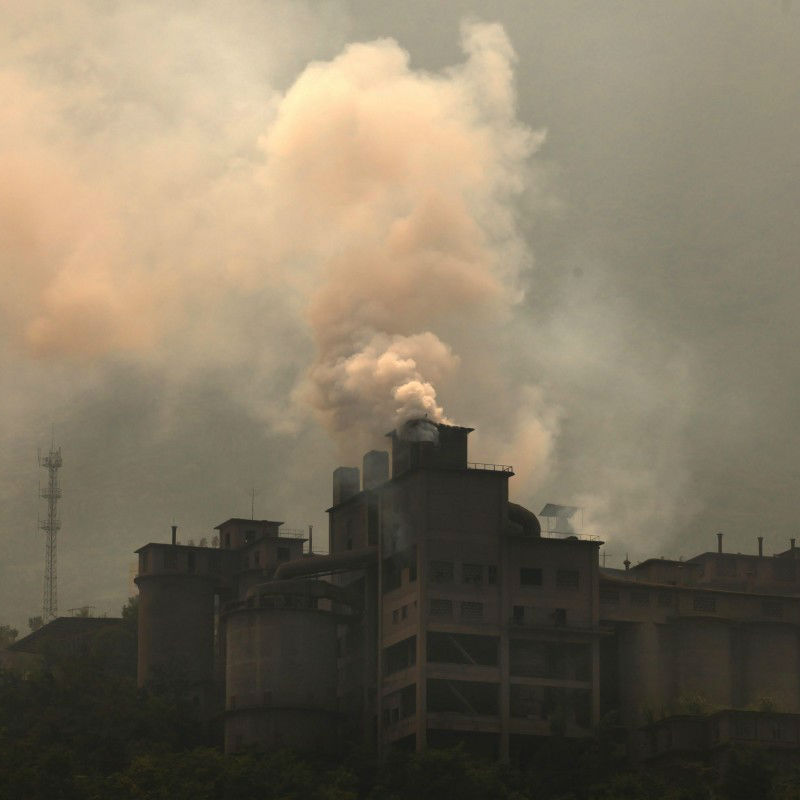The world population grows at a staggering rate each decade, and it is only continuing to increase. Currently, our world population is at 7 billion, but by 2050 it is estimated that the population will reach 9 billion. In order to fit the needs of the rapidly growing population, there needs to be a major increase in food production—approximately by 70%. This raises the question of how? How can the population be fed healthy, wholesome diets without harming the environment? Different countries and regions are trying to come up with solutions to fit the needs of the growing population.
globalEDGE Blog - Page 56
Publish Date:
As the novel coronavirus and COVID-19 pandemic continues to captivate the world in a time freeze like experience, the changes that workplaces have had to effect have been prominent and extreme. Because of the quick spread and serious health consequences of this pandemic, many companies have opted to shift all nonessential employees to a work from home mandate. Through such an action, millions of workers across all industries across the globe now find themselves working from the confines of their respective homes rather than traveling into the office during the week. Here are two benefits and two drawbacks that are being seen as a result of the new work from home experience:
Publish Date:
As the coronavirus sweeps across our globe, leaving millions indoors, we are beginning to see a positive change in the environment. China is striving to halt the spread of COVID-19, fewer cars are driving, hardly any factories are running, and, in turn, skies are clearing up. China is known for its heavy smog that drapes over its major cities. Marshall Burke, an assistant professor at Stanford's Department of Earth System Science, said the better air quality could have saved between 50,000 and 75,000 people from dying prematurely: "The reductions in air pollution in China caused by this economic disruption likely saved twenty times more lives in China than have currently been lost due to infection with the virus in that country."
Publish Date:
As the infamous COVID-19 continues to spread around the world, it is also changing billions of lives. Simple activities such as going shopping at the mall or going out to eat at your favorite restaurant have become merely a dream, as millions of people are forced to follow social distancing mandates. Countries like Italy and China have been on lockdown for months, while other countries like Spain and the United States only started their lockdown and social distancing orders a few weeks ago. No matter what county you’re from, odds are you have been affected by this pandemic in one way or another. Yet, now experts are beginning to wonder what the world will look like after the pandemic fades out, and if some of the coronavirus preventions may stay in place.
Publish Date:
Online shopping, also known as e-commerce, is a wildly popular way for consumers to access products these days. It’s convenient, simple, and can be done with a quick click from home. Companies like Amazon even offer free and fast shipping to their members. But what does online shopping look like from a global standpoint? First of all, it’s a growing industry, with sales worldwide expected to more than double between 2018 and 2023. Let’s look at the e-commerce industry in the three regions around the world.
Publish Date:
As many across the globe become confined to their homes amidst the coronavirus pandemic, one outlet people have turned to as a form of entertainment and social interaction has been video games. In a campaign titled #PlayApartTogether, the World Health Organization has collaborated with 18 major video game companies including Activision Blizzard, Riot Games, and Twitch, in order to promote the message of physical distancing from one another while remaining connected with friends. This campaign has included special events and activities being added to games to encourage their play. With poor mental and psychological effects of isolation and loneliness being well-documented among studies, video games can be a good outlet for staying connected with others and relieving stress by taking one's mind off the negative things going on in the world.
Publish Date:
As reported by the global news, we are being faced with many different challenges. A global pandemic and fear of the unknown is prevalent. To prevent further spread of this disease, many countries have called for total quarantines. More than 25 countries have gone into some kind of quarantine, ranging from full quarantine to simply social distancing. During these stressful and uncertain times, something unexpected happened; shelters are running out of animals as people seek out animals to keep them company in quarantine. Specifically, people are looking into fostering pets for the time of quarantine.
Publish Date:
Since March 30th, more than twenty seven states have issued stay at home orders for their residents, making up two-thirds of the United States population. All nonessential businesses, including dine-in restaurants and bars, have been asked to close. Now the almost 20,000 restaurants and bars located in areas on lockdown are either facing the choice to close completely, or to offer takeout and delivery. This blog will dive deep into how the stay at home orders will impact sales in the previously booming U.S. restaurant industry, and just how much the industry could expect to lose due to the COVID-19 pandemic.
Publish Date:
Plastic has now become an inseparable aspect of our lives. Convenient and user-friendly, it has enhanced our lives in many ways. However as our reliance grows, we need to be cautious of the side effects. Since its mass-production in the 1950s, 4.9 billion tons have been sent to landfill, and only 600 million tons have been recycled. There is only so much space on Earth. Scientists and environmentalists from all over the world are trying to find solutions to solve the issue of single-use, unrecyclable waste.
Publish Date:
As the coronavirus continues to dominate society in the media, in professional careers, and in everyday life, interesting effects have been seen in the changing regulations across industries. Because this virus is so unprecedented in its global reach, sweeping changes have been made across the world in attempts to best cope with the pandemic and to accommodate citizens. Specifically, significant alterations in the regulation and allowances can be seen at banks, in the environment, in the medical sector, and in day-to-day operations like work and school.












